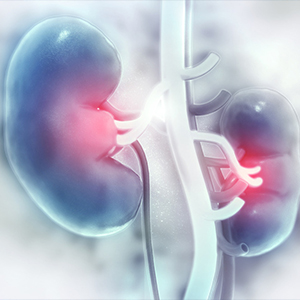Kidney Failure / Infections treatment in Vijayawada
Understanding kidney failure
Kidney failure, or renal failure, is when the kidneys lose their ability to filter waste products and excess fluids. This can lead to a dangerous buildup of toxins, imbalances in electrolytes, and fluid overload in the body. Kidney failure is categorised into two main parts acute and chronic. Acute kidney failure can develop suddenly due to factors like dehydration, infections, or obstruction, while chronic kidney failure progresses slowly over time, often due to underlying conditions such as diabetes, hypertension, or chronic glomerulonephritis. As per Best Doctor for Kidney Failure in Vijayawada , symptoms may include fatigue, swelling in the legs or ankles, changes in urination, and nausea. Diagnosis typically involves blood tests to check levels of creatinine, urea, and electrolytes, as well as urine tests and imaging studies. Managing kidney failure involves careful monitoring and may include dietary modifications, controlling underlying health issues, and regular check-ups to maintain kidney function and overall health. Early detection and intervention are crucial for improving outcomes and enhancing quality of life for individuals with kidney failure.

What can cause kidney failure
There are several causes of kidney failure, which can be broadly categorized into acute and chronic conditions. Acute kidney failure may result from sudden events such as dehydration, sepsis needing Kidney Infections treatment in Vijayawada , severe infections, or obstructions in the urinary tract. Chronic kidney failure, on the other hand, is often a result of long-term health conditions such as diabetes and hypertension, which gradually damage the kidneys over time. Other contributing factors include glomerulonephritis, a condition that causes inflammation of the filtering units of the kidneys, polycystic kidney disease, and prolonged use of certain medications, particularly nonsteroidal anti-inflammatory drugs (NSAIDs) and some antibiotics that may harm kidney function. Additionally, lifestyle factors such as obesity, smoking, and a poor diet high in sodium can increase the risk of developing conditions that lead to kidney failure. Regular monitoring and early intervention for at-risk individuals by Nephrologist in Vijayawada are critical in preventing the progression to kidney failure.
What are the signs of kidney failure ?
- Fatigue: Persistent tiredness and weakness.
- Swelling: Increased fluid retention, particularly in the legs, ankles, and around the eyes.
- Changes in Urination: Decreased urine output, dark urine, or increased frequency, especially at night.
- Shortness of Breath: Difficulty breathing due to fluid accumulation in the lungs.
- Nausea and Vomiting: Gastrointestinal distress caused by toxin buildup.
- Metallic Taste: Altered taste sensation and loss of appetite due to uremia.
- Itching: Persistent skin itchiness from waste accumulation in the bloodstream.
- High Blood Pressure: Increased blood pressure due to fluid overload and hormonal changes.
- Confusion: Cognitive difficulties or confusion arising from electrolyte imbalances and toxin buildup.
What are the treatment options from kidney failure ?
Treatment options for kidney failure as per Best Kidney Doctor in Vijayawada can vary based on the severity of the condition and the underlying cause.
- Dietary Modifications: Limiting protein, sodium, potassium, and phosphorus intake to reduce kidney workload.
- Medications: Prescribing antihypertensives, diuretics, or medications to manage electrolyte imbalances and anemia.
- Dialysis:
- Hemodialysis: Blood is filtered through a machine to remove waste products.
- Peritoneal Dialysis: A fluid is introduced into the abdominal cavity to absorb waste, and then drained.
- Kidney Transplant: Replacing the failed kidney with a healthy one from a donor. This is often the preferred option if suitable donors are available.
- Management of Underlying Conditions: Controlling diabetes, hypertension, or other contributing factors to slow disease progression.
Can kidney failure be reversed ?
Kidney failure, also known as renal failure, can occur in two main forms: acute and chronic. Acute kidney failure is often reversible if the underlying cause, such as dehydration or an obstructed urinary tract, is promptly treated. In such cases, timely medical intervention can restore kidney function, allowing the kidneys to recover. Conversely, chronic kidney failure, which typically develops over years due to conditions like diabetes or hypertension, is generally not reversible. While the progression of chronic kidney disease can be slowed through lifestyle changes, medications, and managing underlying health issues, it often leads to end-stage renal disease, necessitating dialysis or a kidney transplant for survival. Therefore, the potential for reversing kidney failure largely depends on its underlying cause and stage at diagnosis. Early detection by Dr. M.V. Sai Krishna and management at sunrise kidney Centre are crucial for improving outcomes in patients with kidney-related issues.
Frequently asked questions on Kidney Infections
What is a kidney infection?
A kidney infection, also known as pyelonephritis, is a type of urinary tract infection (UTI) that occurs when bacteria infect the kidneys.
What are the symptoms of a kidney infection?
Common symptoms of a kidney infection include fever, chills, nausea, vomiting, and flank pain or tenderness in the side of the back. In severe cases, symptoms can include blood in the urine, frequent urination, and cloudy or strong-smelling urine.
How is a kidney infection diagnosed?
Diagnosis is typically made through a combination of physical examination, medical history, and laboratory tests, including urine culture and sensitivity tests.
What causes a kidney infection?
Kidney infections are usually caused by bacteria that enter the urinary tract through the urethra and ascend to the kidneys.
How is a kidney infection treated?
Mild cases of kidney infections may be treated with antibiotics and pain relief medications. More severe cases may require hospitalization for intravenous antibiotics and supportive care.
Can I prevent kidney infections?
Yes, you can take steps to prevent kidney infections by practicing good hygiene, such as washing your hands regularly, especially after using the bathroom or before eating. You should also:
- Urinate when you feel the need to
- Avoid tight clothing that can trap moisture
- Drink plenty of fluids to stay hydrated
Can I have a kidney infection without knowing it?
Yes, some people may not experience symptoms of a kidney infection, especially if it is mild. However, it is important to seek medical attention if you have symptoms of a UTI or have risk factors for developing a kidney infection.
How long does it take for antibiotics to work for a kidney infection?
Antibiotics typically start working within 24-48 hours of treatment. However, it's important to complete the full course of antibiotics as prescribed by your healthcare provider to ensure the infection is fully cleared.
Can I have long-term effects from a kidney infection?
Yes, if left untreated or poorly treated, kidney infections can cause permanent damage to the kidneys and potentially lead to chronic kidney disease or even kidney failure.

